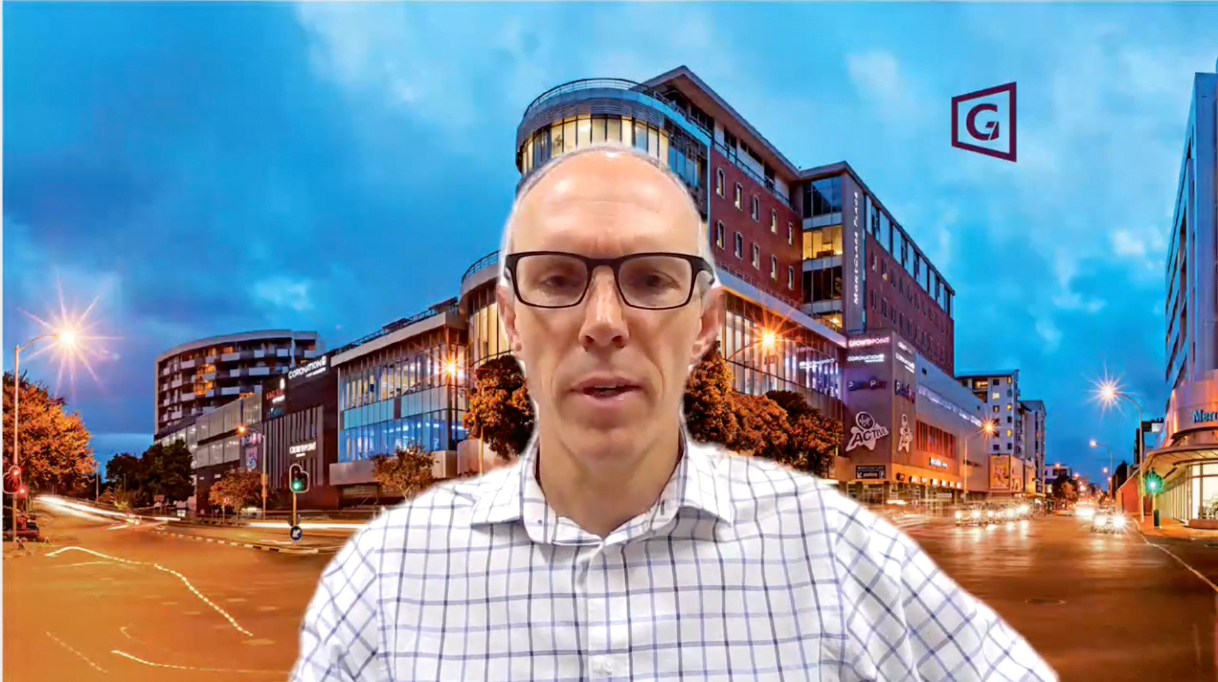
Growthpoint hosted a virtual workshop on ESG strategy for property companies at the Green Building Convention that took place 2 – 4 November 2021. GCX Sustainability and Digital Directors, Ohad Shachar and Bernard Jacobs, and Growthpoint’s Integrated Reporting & Sustainability Officer, Natalie van der Bijl participated in the discussion led by Grahame Cruickshanks, Head of Sustainability & Utilities at Growthpoint.
We unpack some of the key insights from the session:
Property companies need to take a holistic approach to their ESG strategy
In response to how the different targets can act as influencers and bring about a holistic approach when implementing an ESG strategy, van der Bijl said that it is important for property companies to align everything when deciding on their strategy.
“The holistic approach comes from continual engagement because those of us who operate in this space will appreciate that things have changed significantly and, more recently, quite rapidly. As a result, you have to continually engage, educate and inform all the participants in this process.
“It’s beyond just the internal communication, there is also an external factor and the reality is that we are influenced by external expectations [from stakeholders and investors]. It does make your task very challenging when it’s time to produce your report instance and, from my perspective, that is your first point of call because it’s a holistic communication of what your strategy is, your targets and what your objectives are going forward.
“When you communicate this information, you need to contextualise the materiality to your organisation because not all indicators will be relevant to your organisation.”
Regular data collection and monitoring is critical to an ESG strategy
ESG data collection has become really important according to Jacobs, who said that it becomes the “cornerstone of what investors are looking at when making an investment”.
“We all heard the Peter Drucker quote, ‘You can’t manage what you can’t measure’. I am going to take it a step further, if you don’t manage what you measure you are wasting your time measuring.
“Most of the organisations that we’ve dealt with historically only look at their environmental data on an annual basis, at best on a quarterly basis. The fact is if you haven’t looked at that date regularly and only a year, year and a half after the fact, it’s impossible to say that you have been performance managing the data. You need to look at the data more regularly.
“ESG data is complex. Make sure you understand what data is relevant. ESG reporting is a journey – there is no quick fix. You need to start somewhere. Start managing the information. Most importantly, act on the data. Finally, make sure all stakeholders are seeing the same message.”
“I really liked the takeout – start with what you have, because when you do look at complexity around non-financial reporting under various different influencing factors, it’s very easy to slip into the mode where an executive gets hold of a useful piece of information that makes a really nice soundbite and uses that. But I don’t think we should be pointing fingers at instances where that’s happened because it is a very overwhelming task to undertake,” Cruickshanks said at the end of Jacobs’ presentation.
Speaking on tools for project identification and implementation, Shachar said that it is important for companies to use data-driven tools to identify material opportunities.
“You want to get to a position where you can trust your baseline because without a trustable baseline it’s going to be very hard to track your progress against a target. Try to get data on a monthly basis, so you can start seeing where you are veering off target.
“Once you’ve got a list of projects and interventions and you want to start trialling and implementing them, you need to monitor everything you have done. You need to look at tracking your data accurately and, potentially, on certain projects you may want more rigorous monitoring and valuation systems for projects. It’s also important to meter and monitor as much as possible.
Sustainable finance and data
Shifting the focus to sustainable finance, Anneke Lund, Head of Sustainable Finance Solutions at Standard Bank, provided insight on where the financial sector comes in when companies are setting targets.
“What we do see in the market is that the principles that are generally followed are that your targets need to be beyond business as usual and ambitious. So, I think the tricky part is striking that balance between setting targets that are achievable, reasonable but ambitious.
“So, the work that goes into that and this is where we come in and assist with and support the type of work that has to be done is firstly looking at the historical trends of the business and then looking at the forecasted data and making sure that you are not just following that business as usual trend.
“To that point, it’s also very key to understand where you peg your baseline. If in your historical data you had already initiated some significant projects around reducing your carbon emissions, you would want to go back to that baseline year to ensure that you’re capturing all the activities and projects that you have followed.
“The second part is around benchmarking. So, it’s having a look at your peer group – it can be quite tricky in the REIT space where portfolios are quite mixed, but it’s really pulling out the closest peers and understanding where as a business you would peg yourself against your competitors and then you would look whether you are leading or lagging in the space. That will set the scene for the level of ambition for your targets.
“Why is all of this necessary? It’s really to make sure that you have a robust structure and that you can back the targets that you’ve put forward. That’s why data collection and reporting, and not just having the data but using the data is really key. It’s exactly the work you need to do to be able to take the next step on a sustainability-linked instrument.”
Learn more about how GCX can help you on your sustainabilility and ESG journey, get in touch here.









